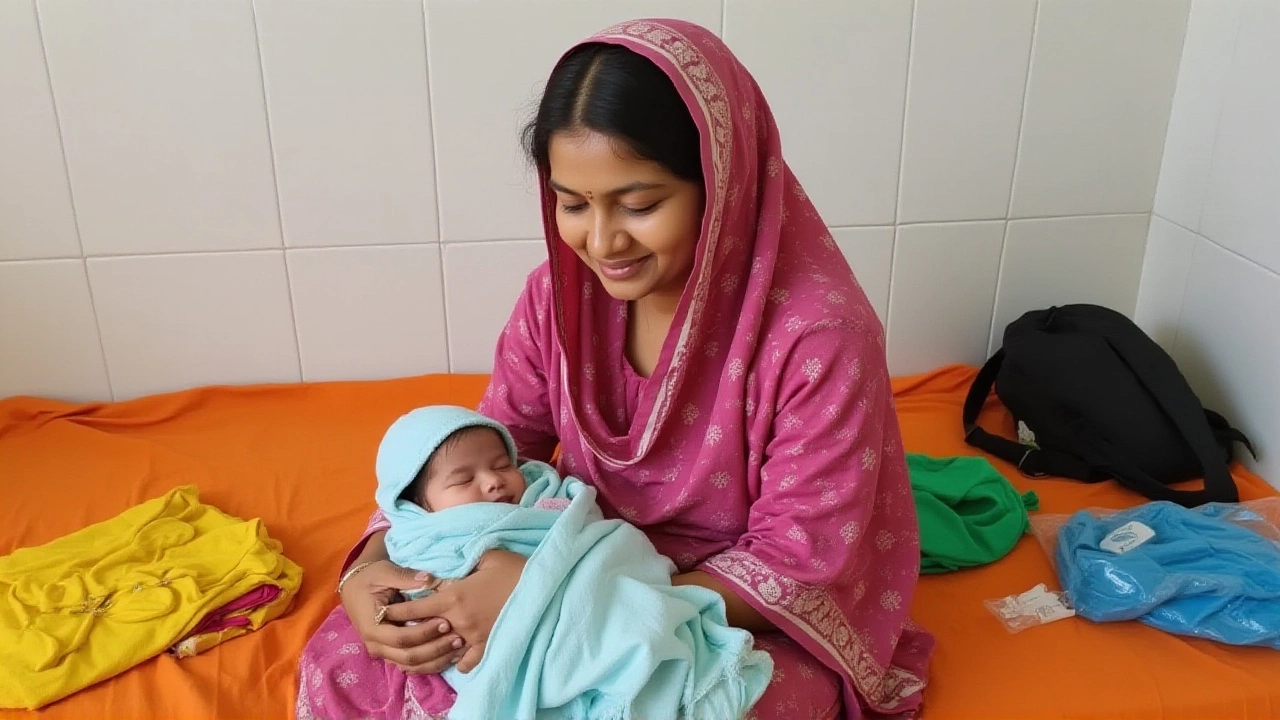When Santosh Kumar Mandal and his wife Rakhi Kumari, residents of Balthi Maheshpur, Katihar district, Bihar, welcomed their second daughter on , they christened her Sinduri after the Indian Army’s Operation SindoorPakistan, a series of cross‑border strikes that destroyed nine suspected terror hideouts following the Pahalgam massacre.
Operation Sindoor: What Happened?
The early‑hours of May 7 saw the Indian Army launch a coordinated aerial offensive targeting what intelligence officials described as "terrorist sanctuaries" in Pakistan‑occupied Kashmir and the Pakistani province of Punjab. In total, nine locations were hit, and the Ministry of Defence later claimed that key logisticians linked to the April 22 Pahalgam attack – which claimed 26 lives, mostly tourists – were neutralised.
Prime Minister Narendra Modi hailed the operation as a decisive "message of resolve" and praised the role of women officers leading several sorties. The strike, dubbed Operation Sindoor, quickly morphed from a military maneuver into a nationwide rallying cry for patriotism.
Birth of Sinduri: A Symbolic Moment
Rakhi Kumari was admitted to Katihar Seva Sadan in the pre‑dawn hours of May 7. After a swift Caesarean section, the baby emerged as the nation’s headlines were still buzzing about the airstrikes. Santosh recalled the instant surge of pride: "When I heard the news of the strikes, I felt a rush of patriotism. Naming our daughter Sinduri felt like a blessing – a tiny tribute to the soldiers who defended us."
The couple said they plan to celebrate the baby’s birthday each year on the same day the operation took place, calling it "a shared anniversary of national courage and personal joy."
Patriotic Naming Trend Across Bihar
Word of the newborn’s name travelled fast. By the end of the week, at least 12 families in Muzaffarpur district had christened newborns "Sindoor" or "Sindoori". In the Bochaha block, a teenager named Himanshu Raj told reporters, "She was born the night the airstrikes lit up the sky, so we named her Sindoor – a reminder of hope."
Similar stories emerged from Motihari and Sitamarhi, where grandparents expressed hopes that these babies would grow up to serve in the armed forces. A common thread: the name now symbolizes not just grief over terror but resilience and a collective vow to protect the nation.
Families' Hopes and Future Aspirations
Both Santosh and Rakhi have clear dreams for little Sinduri. "Even though we belong to a modest, lower‑middle‑class family, we’ll leave no stone unturned to give her the best education," Santosh said. He added that he envisions her joining the Indian Air Force after college, following the example of the female officers who led the Sindoor mission.
Rakhi echoed the sentiment, noting, "If she ever puts on a uniform, it will be a source of pride for the entire village. We want her to feel the same love for the country that we felt when we heard the news of the operation."
What This Means for National Sentiment
The naming frenzy highlights how a single military event can ripple through everyday life, turning newborns into living memorials. Political analysts argue that such grassroots expressions of patriotism can bolster morale but also risk politicising personal milestones.
Dr. Anjali Mehta, a sociologist at Patna University, observes, "These gestures reflect a deep emotional connection between citizens and the armed forces. While they foster unity, they also underscore how security narratives become part of cultural identity."
Regardless of the academic take, the families in Bihar celebrate each new "Sinduri" as a beacon of hope, a reminder that even amid terror, life and patriotism keep marching forward.
Key Facts
- Operation Sindoor launched on , targeting nine terrorist hideouts in Pakistan.
- Pahalgam terror attack on April 22 claimed 26 lives, prompting the retaliation.
- Newborn Sinduri named by Santosh Kumar Mandal and Rakhi Kumari of Katihar.
- At least 15 babies across Bihar received the name "Sindoor" or variants within a week.
- Parents hope the children will join the armed forces, especially the Air Force.
Frequently Asked Questions
Why did families choose the name "Sindoor" for their newborns?
The name directly references Operation Sindoor, a military response that sparked nationwide pride. Parents view it as a tribute to the soldiers and a symbol of hope that their children will grow up in a safer, unified India.
How many children were named after the operation in Bihar?
Local reports indicate at least 15 newborns across Katihar, Muzaffarpur, Motihari and Sitamarhi received the name "Sindoor" or variants within the first week after the airstrikes.
What was the objective of Operation Sindoor?
The Indian Army aimed to neutralise terrorist infrastructure linked to the April 22 Pahalgam attack. Officials say nine suspected hideouts in Pakistan and Pakistan‑occupied Kashmir were destroyed, sending a deterrent message to hostile groups.
Will the naming trend influence future recruitment for the armed forces?
While it’s too early to gauge long‑term effects, many parents, like Santosh Mandal, explicitly hope their children will join the Air Force or Army. Such personal pledges could translate into higher enlistment interest, especially in regions where patriotic sentiment is strong.
What do experts say about linking personal milestones to military events?
Sociologists note that this blending of private life with national security narratives can reinforce social cohesion but may also politicise everyday choices. Dr. Anjali Mehta of Patna University suggests the phenomenon reflects a broader cultural integration of defence identity into civilian consciousness.

Hi, I'm Arvind Khatri, a multifaceted expert in health care, news, and sports. With a passion for Indian news and sports, I enjoy writing about the latest happenings and trends in these fields. My background in health care allows me to provide valuable insights into the impact on society and individuals alike. I am dedicated to sharing my knowledge and expertise with others to make a positive impact in their lives.